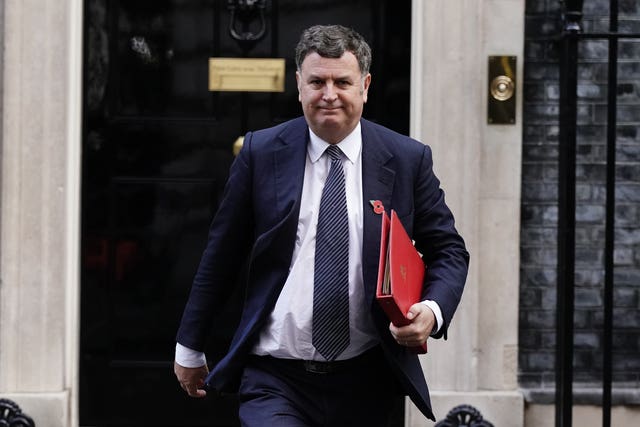The review into the state pension age is considering issues of cost and intergenerational fairness, the Work and Pensions Secretary said, suggesting the impact on the public purse of an ageing population will get “pretty hairy”.
Mel Stride said the Department for Work and Pensions (DWP)’s review is expected before May, but refused to be drawn on any decisions.
He was asked about the review by members of the Work and Pensions Committee, who pointed out that life expectancy is not rising.
He told MPs: “I think there are various moving parts in assessing where we should go with the state pension age.

Work and Pensions Secretary Mel Stride (Aaron Chown/PA)
“One of them is life expectancy and more precisely, what proportion of your life should we expect people to have in retirement as opposed to not in retirement?
“Another is the cost, and if you look at the consequences of us living longer, and you look at that, for example, as expressed in the financial stability report that the OBR produces every year, where it casts out 50 years and says ‘what are the public finances likely to look like given the demographic change that’s going on?’, the cost of pensions being an element within that, it all gets pretty hairy.
“So there is also certainly this other element of ‘what’s the cost going to be’?
“I think there are other issues – intergenerational fairness, when you look at the split between how long somebody works to support those that are not working.
A previous review of the state pension age in 2017, led by John Cridland, established that people should expect to spend on average up to one third of their adult life in retirement.
Asked if the Government is “seriously thinking” of reducing that proportion, Mr Stride said that review is “a factor to consider but I can’t really be drawn on what my thoughts are at this stage as to whether Cridland is about the right figure or not”.
“But clearly, that metric is a very important measure”, he added.







